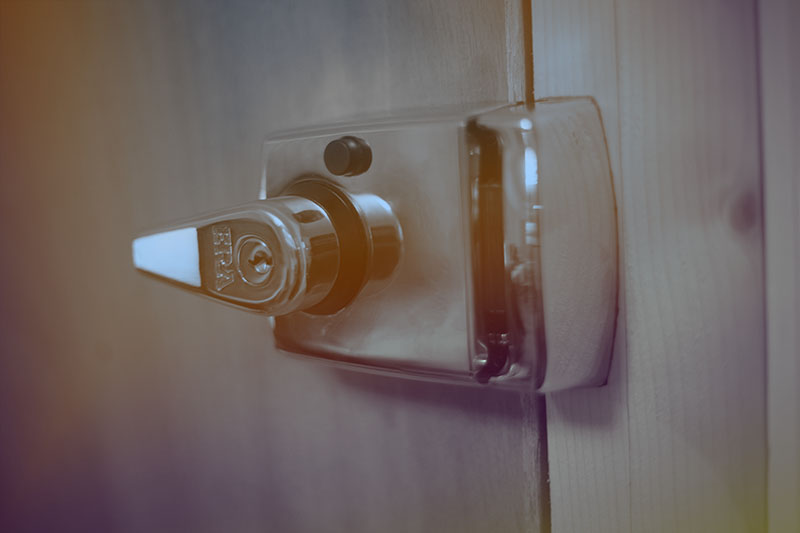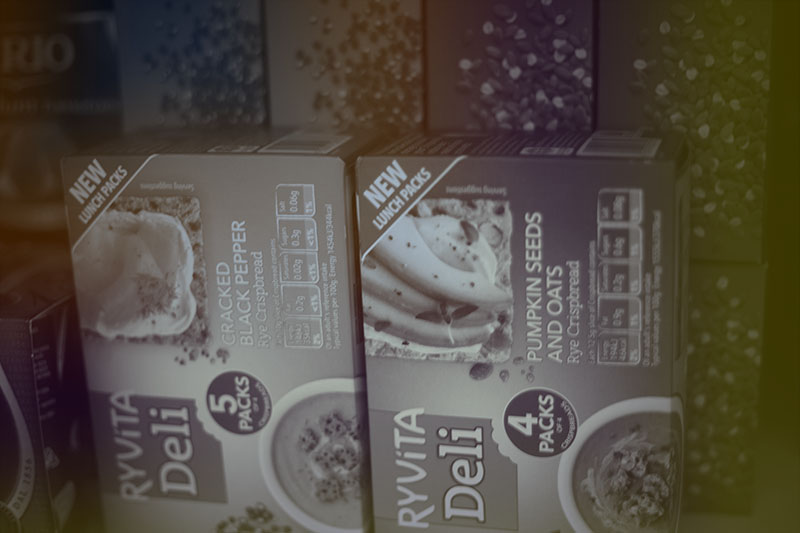While we’re not the Apartment Prepper blog, we have somewhat recently moved into a studio flat here in the UK, giving us a lot more insight into the world of prepping from an apartment. Going from prepping in a 5 bedroom house in Canada to prepping in a small studio flat was a choice we made to avoid having to have a mortgage. The transition from being in such a large space to being in a small one actually came a lot easier than we would’ve thought, thanks to careful plotting and planning out.
I now have a new appreciation for preppers who choose to live in apartments – it’s really not as bad as I thought! In fact, with the amount we’re personally saving on having a mortgage (couldn’t afford a full on detached house, but could afford a studio flat without a mortgage!), we’re probably a lot better off thanks to being able to buffer our emergency finances and increase what we can spend on our prepper stockpile.
While many of these tips are for those who own their flat or apartment, many are also applicable to those who are renting the space they are living in. With permission, if you’re staying at your rental long enough, you could also likely convince a landlord to let you make the alterations to the apartment or flat you would want to if you owned the place outright and could do what you wanted with it.
As a final note, since we aren’t Apartment Prepper, if you haven’t yet checked out Bernie Carr’s site, you should probably do so! She has some excellent tips for those of you living in small places, from planning an apartment garden, increasing storage space in small residences, keeping an apartment warm, and hiding valuables in an apartment, all the way over to general prepping mistakes to avoid if you live in an apartment and amazing apartment prepping tips from her readers.
Now without further ado…

25 Tips For Apartment Preppers
1. Invest in a good storage system.
Make sure you maximize space by really decking out your storage system. Yes, it’ll cost you quite a bit to do this at first, but in the long run, it’ll be very worthwhile considering space is a premium and you’ll want to be able to access what you’ve stockpiled quickly and easily when there’s an emergency.
2. Grow herbs inside.
You might not be able to have a full prepper garden, but you can still have herbs around the house. These will make mealtimes much nicer in case you do have to eat the same canned foods over and over again, say.
3. Don’t pass on having a tool kit.
You may not think you need very many tools because you live in a flat or apartment, but you’d be surprised what would’ve come in handy when you haven’t got it. Keeping a well stocked tool kit is something everyone should have, even if they’re not in a house.
4. Reinforce security.
This means better locks on doors, new windows if they’re not up to spec, and just altogether making your home as difficult to get into as possible.
5. Know your fire plan.
Don’t just make a fire plan, mentally make sure you remind yourself and verbally remind anyone else you live with of what to do if a fire happens regularly.
6. Have fire blankets and fire extinguishers everywhere that makes sense.
Don’t just assume a fire will start in the kitchen. If it starts where the dryer is on the other end of the apartment or flat, you’re going to regret not having a fire blanket and extinguisher nearby. Have them everywhere that it makes sense to: and make sure you put them within reach! If your stove is in the middle of your kitchen, don’t put the fire blankets and extinguishers further in, past where you’d stand to get out of a fire’s way. Make sure if a fire breaks out you have easy access without having to jump into a flame to grab what you need!

7. If you live far up, have a plan for getting out from the windows.
What happens if a fire happens in the apartment or flat next door? Or worse yet – in the hallway? You need to be able to get out of your flat or apartment from the windows or you’re unfortunately going to be toast. If you’re high up, this can be a bit tricky, but with a good plan, and if you’ve got the money for it, some excellent gear, it really is doable.
8. While you may not have the space for too many books, keep hard copies of a few valuable ones.
It’s not that digital versions of books aren’t excellent: they are. It’s just that sometimes, you may be left without electricity and so the information you have in those books may become temporarily inaccessible – when you need them the most. Some survival books will come especially handy, as will some books on foraging and first aid. Choose wisely which you’d like to have around but don’t hesitate to keep a small number in your home if you think they will prove valuable in an emergency.
9. Don’t forget to stockpile water.
I know, it takes up space you don’t think you have. It’s true, it’s not one of the easiest items to stockpile, especially considering it’s usually so available, but if you’re in a place where you get a lot of precipitation, stockpile at least some water. You never know when the water line in your apartment building might get cut off (been happening to us a lot lately for unexpected maintenance actually), and though you could eventually stick your arm out the window and collect rain water in a container that way, having at least some on you will be really handy in a small emergency (even just to wash your hands with!). If you’re in a place where droughts happen and where you really don’t get much precipitation, take stockpiling water much more seriously, as it could be an absolute nightmare having to get a hold of it if the water to your building gets cut off.
10. Keep blankets, loads of them.
Power outages in apartments are not fun. It’s unlikely you’re going to be able to go outside and make a fire in the parking lot to stay warm, while others who live in houses will be able to go into their gardens to do so if they want. Luckily, you can keep warm enough with blankets after having barricaded yourself, those who live with you, and any pets you have into a single room. This works even if the power goes out in sub-zero winter temperatures (it happened to us once). Don’t underestimate how useful blankets can be.
11. Be aware that a lot of winter prepper gear is a fire hazard.
Things like gas/butane heaters are not advisable for keeping and using in your home. Always look for safe alternatives taking into account limited space, airflow, and lack of easy escape routes.
12. That being said – make sure you’ve got as many winter emergency supplies as you can.
It’s important to get a hold of every winter emergency supply you can use safely from within your apartment. Hot water bottles for example: amazingly useful considering when the power goes out, the hot water isn’t necessarily out, too. A tent and sleeping bags? Could be very useful in case you need to keep extra warm and the blankets and staying in one room isn’t doing the trick. Butane heaters aren’t the only thing around that can help keep you warm – there’s plenty of alternatives you can stock up on that’ll do the trick much more safely.
13. Concentrate on stockpiling items that have as many purposes as possible.
Toilet paper over tissue paper. Tissue paper over paper towels. The more uses you can think of for an individual item the more valuable it should be to get a hold of that item for your stockpile. It’ll help you out in the long run to have these kinds of items around the house, especially because it will help you conserve space for other important preps (like storing water).
14. Stockpile small, compact items if there are such versions of what you’d like.
Yes, having a full sized saw would come in handy, but it’s probably not practical to store something like that in your house. A folding saw like the Bahco Laplander, however? Completely ideal, would do the job quite nicely, and you could have 5 in your house without it taking up the amount of space a regular saw would.
15. Stockpile foods that have a high calorie count for the amount of space they take up.
Baked beans, cans of chili, powdered milk, and condensed soups are great for this. I’m sure there are many more, but the point stands: if you’re low on space, make sure what you have is the best in terms of calories it can provide you for the room it takes up.

16. Stockpile as many foods as possible that don’t need to be cooked to be eaten.
This is excellent for those times you have no electricity, because as I’ve said before, starting a fire to get warm, or in this case cook, is not a good idea in an apartment building. Canned fish, baked beans (not the most pleasant to eat unheated, but you can!), and crispbreads are good examples of these.
17. Stockpile foods you can cook by simply boiling.
Why? If you need to eat, have run out of foods that don’t need to be cooked, and only have other stockpiled goods on you, this is the best secondary option. It’s relatively easy to prepare dehydrated food inside an apartment, even with the grid down. Teensy butane cookers are easy to store and use, even in small apartments – just make sure you monitor them closely and always crack open a window when using them! Instant noodles, pasta, canned soup, chili, and other such foods are great examples of foods you only need to boil to cook.
18. Be extra cautious about hiding your preps from neighbours.
Now, Thomas and I do tell friends and family about our preps, and we don’t mind if they come over in an emergency, but we don’t want neighbours knocking on our door because they know we’ve got supplies in spades. If you’re friendly with your neighbours, great, but that doesn’t necessarily mean you should be telling them about your preps. If you don’t want them over in an emergency, don’t tell them at all. If you don’t mind if they come over, but you’re not sure if they’ll invite others (they really might), you shouldn’t be letting them know about your prepping in that case either. Be as cautious as you can be about who knows about your preps.
19. Ascertain threats that might come from your neighbours.
Security is of utmost importance. It’s good to constantly be assessing neighbours for whether or not they, or the visitors they bring home, might eventually become security risks.
20. Work on getting a bug out location.
There are cases where you try to bug in, but the ideal situation obviously becomes to get out as quickly as you possibly can. Bugging in should, in my opinion, be the priority, but in some cases where this is no longer a good idea to try, it’s best to have a bug out location purchased and that is easy for you to get to. Prepping is about the unexpected, and unfortunately, while we never want to be driven out of our homes, it may come to that in some cases.
21. Consider having a second front door.
We added a second front door to our flat before we moved in – not only for sound insulation purposes but for a boost to security. If the addition of a second front door is easy and makes sense to do for your flat, why not go ahead and do it? It creates a natural buffer between yourself and anyone in the building, and if someone does happen to get through the first front door, chances are you’re going to know about it. They’re going to be extremely slowed down, if not completely give up on breaking into your apartment or flat, if once they break through the first front door, there’s a second, stronger door to get through.
22. Make sure you invest in communication tools.
If you’re stuck in your building, it will become important very quickly to have a way to communicate with those outside. Get yourself a licence and invest in a HAM radio to help on this front.
23. Look into solar panels that you can hang from the window.
Solar panels come in all shapes and sizes. Haven’t got the ability to have solar panels on a roof because you live in an apartment? No problem. There are plenty you can hang from the window. No, they won’t give you as much electricity as one on the roof will, but they’re great for absolute emergencies where you just need to keep charged something small like a tablet or phone.
24. Don’t forget to stockpile food (& supplies) for your pets.
Worrying about pet food during an emergency should be the last thing to cross your mind. Kibble takes forever to expire (I don’t care if you prefer to feed your cat wet food, you can still stockpile dry food for an emergency), it’s easy to store, and it just makes no sense to add one more thing to your list of things to worry about during an emergency by being irresponsible enough not to have plenty in the house. If you’ve got indoor cats, stockpile litter, too.
25. You can’t just pop down to the garden to take a dump, make sure you have a plan for #2.
Proper hygiene in an apartment during an emergency is still very important. Stock up on wet wipes and plastic bags, as well as having an extra bucket, just in case your toilet is not able to be used. At least if your business is done in a plastic bag (line the bucket and then go!), you can easily take it out of your apartment and chuck it in the outside bin. Much better than having to live with it inside with no easy way of getting it out without getting dirty. Wet wipes will also come in especially handy in such a situation – as you’re likely to be dealing with having little to no water, and so what water you do have will be extremely valuable. Hand sanitizer: again, a good idea to have to help with this kind of situation.

More Advice for Preppers Living in Apartments?
Are there any more tips for apartment and flat preppers that you can think of?
This is one of those articles that’s never really complete because of the sheer amount of good information there is out there on how to boost up your preparedness for small-space living. So many tips that I’m sure I’ve missed out on sharing!
Let us know what you think of in the comments!
This is a great website! I just started researching apartment prepping.
Much appreciated!
what you can do to improve the door and door lock is replace the short screws in the hinges and lock plate with 2 inch long screws. Just buy screws the look just like the short ones. You will need to drill pilot holes to drive the longer screws in. This is where a cordless drill works so well. Do one screw at a time and vacuum up after the drill. This makes the sure the screws are in to the studs and not just the molding around the door
Yeah, thats a great suggestion Ben, a lot of people have weak frames & strong locks- one doesn’t help without the other!
Erm, most renters can’t change windows or locks let alone add second doors… apartments just don’t work like that.
Addressed this in the intro – “While many of these tips are for those who own their flat or apartment, many are also applicable to those who are renting the space they are living in. With permission, if you’re staying at your rental long enough, you could also likely convince a landlord to let you make the alterations to the apartment or flat you would want to if you owned the place outright and could do what you wanted with it.”
You’ve actually made me think about something I’ve never considered before: I’m not on the ground floor of my apartment, so I must use the elevator to get up to my apartment. The stairs can only be used to go out, not get back in again. And the building itself has electronic keyless fob entry. So if the power goes out, I may not be able to get into my building or up to my apartment. That’s definitely something I need to look into if my plan is to bug in at any point. The plan falls apart if I can’t get in once I’m outside.
That’s interesting! Never heard of a set up like this (where the stairs cannot be used to get in, only out). I wonder if they have a backup way to get into the apartments if there’s no electricity. Shouldn’t there be something?
Generally doors have a latch that pushes into the door then pops into place once the door seats in the frame. A piece of duct tape over the latch will keep it pushed into the door and keep it from latching behind you. You won’t want to leave it in this conditions for long for security reasons, but for a quick trip to your car or something, it would allow you to get back in. Either that or bring a few folks with you on your way out post them at the doors and have them let you back in. In preparing ahead of time to get if the grid goes down while you are away, Make a few friends in the building and have a plan with them to let you in if they are home when it happens.
In case of bug out, always keep your car’s tank full, since gas will evaporate in a half tank when it’s cold.
Didn’t know that! Thanks for the tip.
One way to make your food last longer (which I have not seen written anywhere) is fasting. Some people fast occasionally for religious reasons and others see it as a very healthy thing to do on a regular basis. Anyone (except those in poor health, the elderly or children) should be able to fast one day a week. Some people even go on a partial fast, eating only broth or juices, or eating only one meal a day. Personally, when I eat very light for one day, I have lots of energy and feel great the next day.
For sure. Though I personally prefer really intense rationing, which is essentially the same as the whole one-meal-a-day fasting technique you were talking about, the fasting for a whole day a week way works great as well. And in my opinion, it feels like your stomach “shrinks” or can take less food after that day of being hungry (based on my experience with fasting for a day – maybe I’m wrong though!) so that may help with being happy with smaller rations later as well.
Great tip!
Also if you consider a Keto type of diet you will basically not be hungry at all. You’d need calories but fats and proteins would be your greatest need with carbs to keep your thoughts clear.
Great Article Elise!
Thanks so much :)